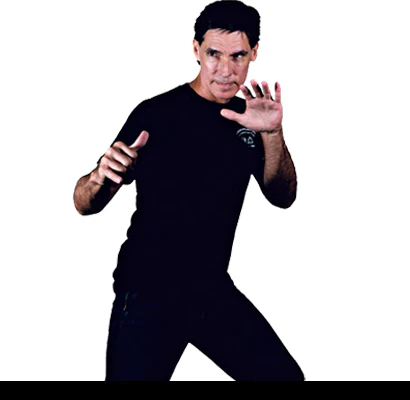The Art of Fighting without Fighting
Anyone who has watched Bruce Lee’s “Enter the Dragon” knows this line well. What a great set-up, complete with a hilarious follow-through. Years later, this line can provoke important questions for those interested in developing the functional fighting skills that Bruce Lee advocated.What does this line have to do with our training? Here is the first point. In a real situation, the best option is to be able to find a way out of the confrontation without coming to blows. This could be referred to as the art of fighting without fighting. In JKD Unlimited, we stress that the main goal in a street confrontation is to “Go home safely”. The goal is not to beat the other person up, or pull off a nice sweep, or get to an armbar. The main idea is to use the most efficient (and legal) way to get yourself out of there. The best way to do this is to avoid those places and circumstances where belligerence usually occurs. You know the spots. Local taverns after midnight, dark alleys in the bad part of town, etc. Avoidance will help you to go home safely. If an aggressive person confronts you, your next best option is to have the skills necessary to talk yourself out of the fight. This is something that must be practiced, just like all of the physical portions of the art, so that you can develop useful tactics in this realm. If someone decides to take out their frustrations on you, but you find a way to talk them out of it so that you can go home safely, then you have succeeded in using the art of fighting without fighting. You should congratulate yourself for dealing with an ugly situation in such a beautiful manner. There can be times, though, when there is no amount of clever conversation that will get you out of a fight. People that pick on others for the sport of it are not gentlemen, and may not be easily dissuaded from picturing you as a punching bag. If you can’t get away, you will have to apply your fighting skills until you can make an exit. Just like the verbal skills mentioned earlier, you have to practice fighting skills to be able to apply them. This is about as obvious as fighting concepts come, so why do I bring it up? What does this have to do with the art of fighting without fighting? I am glad that you asked. The emphasis that I want to make, as I have done before and will continue to do, is that we must be able to apply our skills in a realistic setting. People spend years in martial arts schools “perfecting” fighting motions without learning how to apply the motions against an attacker. Which arts do that? Nearly every art. Okay, now I’ve got you riled. I can’t be talking about your art, can I? Well it really isn’t the art, but the way people practice applying the techniques of that art. A real attacker is going to attack you ferociously, suddenly, and will probably not stop to touch gloves with you before he begins the assault. The attack will be delivered with 100% of the attacker’s power, and with full resistance. Most arts, for safety’s sake, never allow their practitioners to engage in full-out sparring. Safety in training is very important, but at least allow the students to practice unlimited sparring go at around 70% intensity while wearing protective equipment. Without the sparring, there will be no timing. No drill will develop the timing like sparring, because a drill has too many restrictions and patterns built in. Drills are great for perfecting a single move, or isolating a portion of a fight. A real fight has no pattern, but is chaotic and must be adapted to. Those who have spent lots of time sparring, especially in all ranges combined, are much better prepared to apply their technique against a resisting opponent because they have done so many, many times. Earlier I mentioned that nearly every art could be practiced without learning proper application. But how about muay Thai? Thai boxers do go 100%, which makes the art very good. Unfortunately, you can find people all across the U.S. and the world who are training muay Thai techniques and conditioning without any sparring. You can find tons of instructors in JKD, the Filipino martial arts, Indonesian Silat, aikido, kung fu, and other arts who have never sparred at 100%. Instructors who haven’t tested their skills against resistance leads to legions of students who will not test their skills in sparring, and will therefore be ill-prepared to handle a street situation. How about Brazilian jiu-jitsu? Unfortunately, BJJ technique is now being taught in many places without the sparring that develops the student into a competent fighter. What would you call it when martial arts techniques are taught without any sparring time? I would call it the art of fighting without fighting! Don’t delude yourself. If you want to learn how to fight, you must practice fighting someone who is fighting back!2 Responses
Anthony Allen
I 100 percent agree with you. I was doing the jkd concepts aproach and let me just say with respect I needed a martial art make over. I started waking up when I heard Matt Thornton mention aliveness. Then I investegated more in to jkd unlimited. Then I ordered and training in MMA for the streets and I never experienced a real training method like this. We need resistance to really know what works under pressure.
Leave a comment
Comments will be approved before showing up.

Sarah Badat-Richardson
February 03, 2017
Thank you for the kind words Anthony. I’m glad our programs are helping you. Yes we need resistance, especially progressive resistance so we don’t too much too soon and training is fun. Aloha! Sarah